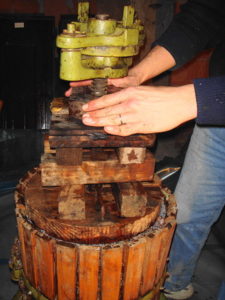 Once regarded as a home-spun, delightful rural pastime for the country-loving folk, fruit wine has grown into its britches and is making inroads into the wine trade around the world. Fruit has gained an undeniable foothold in the world of discriminating wine lovers everywhere and with good reason.
Once regarded as a home-spun, delightful rural pastime for the country-loving folk, fruit wine has grown into its britches and is making inroads into the wine trade around the world. Fruit has gained an undeniable foothold in the world of discriminating wine lovers everywhere and with good reason.
Wineries have been quietly turning their attention away from traditional viniculture and focusing on harvesting the many merits of fruit wines in a rapidly growing market. No longer has it become infra dig to be seen sampling a particularly nice, well-rounded glass of blackberry or peach wine; and even vegetables are coming of age.
With over 160 fruit wineries in current operation in Canada alone, fruit wine is a thriving industry with a growing fanbase. There are a variety of fruit wines being produced for the retail market, with the distinct advantage over grape based wine that production can be almost continuous as different fruits come into season throughout the year. With a shorter maturation period than wine made from grapes, country wines can be ready for the glass in as little time as 1-6 months from the beginning of the fermentation process.
Health Benefits of Fruit Wine
You don’t have to own a winery to enjoy producing your own fruit wine. For the avid gardener or smallholder, fruit and vegetable wines are a natural extension of the methods they use to capture and preserve their harvests each year. There may well be some question over whether or not fruit wine could count as one of your 5 a day, but regardless of this, what is known as country wines are a great way of using an abundance of fruit to good advantage. Vegetables too can be utilized, so if you have a surplus of parsnips or carrots, or even French beans, the judicious use of sugar and yeast means that you can drink your crops as an accompaniment to your meals, not just eat them.
Making your own wine gives you hours of pleasure; not only by producing something enjoyable to drink and sometimes more palatable than bought wines – and lower end table wines in particular. A glass or two of wine can be good for your health, as well as conserving the contents of your wallet. The jury may still not have given its final vote on some health benefits commonly associated with drinking wine; it is not yet known definitively whether drinking wine increases or decreases the risk of breast cancer in both men and women for instance. There are however known benefits to drinking wine in moderation, agreed across the health industry. Moderate wine consumption has been demonstrated to reduce the risks of both heart disease and stroke; and there is some evidence to suggest that the risk of diabetes may be lower in moderate drinkers. It is believed that moderate consumption of alcohol, including wine, increases the good cholesterol (HDL) and reduces the bad cholesterol (LDL). It is now understood that HDL acts in cleaning up and ejecting LDL cholesterol from our bodies.
Polyphenols are the most abundant antioxidant found in our diet. The polyphenols found in wine help to regulate our digestive processes, reducing unwanted and increasing beneficial flora in our digestive tract. Because the regulation of our immune system is affected by our digestive health, balanced flora help in reducing inflammation throughout the body. A variety of health disorders, such as episodic or persistent alopecia, may be caused by inflammation; so by reducing inflammation there is a direct benefit to be had in the control or reduction of these types of skin disorder. Anyone struggling with hair loss and the destruction of follicles which prevent re-growth of the hair, a glass of wine may be of real help in treating alopecia and other inflammatory health conditions. Oxidative stress is a major contributor to neurodegenerative diseases such as Parkinson’s and Alzheimer’s; as well as a number of other disorders, including heart disease. In recent years it has also become widely accepted that we need antioxidants to help in protecting our bodies against the effects of free radicals, which cause oxidative stress and accelerates the aging process.
Wine is high in resveratrol and proanthocyanidin antioxidants, which can contribute towards protecting us against those free radicals. Recent research by the University of Florida indicates that blueberry wine, for example, contains more antioxidants than all the white wines included in the study and all but 20% of the red wines.
We should remember while self-medicating though that wine in moderation is supportive of health, but excess drinking will cause more harm than good. A glass of wine a day for women and two for men is a reasonable guide to follow, whether we are enjoying a bottle of fruit wine from our local winery or have put our talents and surplus harvest to good use.
